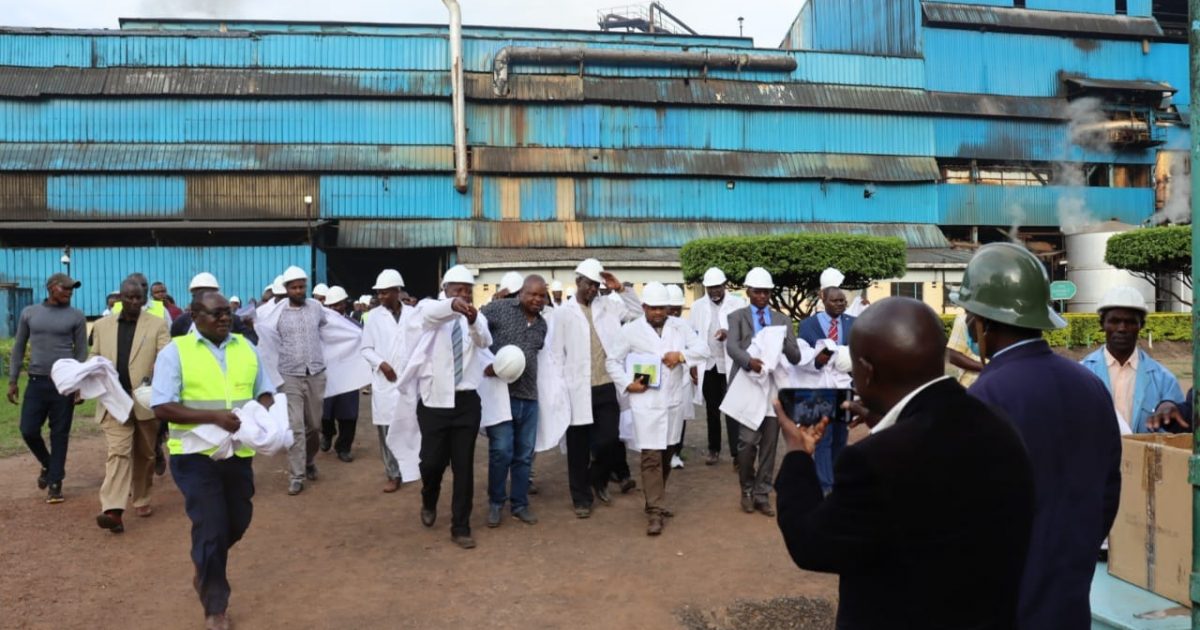Sugar factories in western region are face the spectre of shutdown following an acute shortage of cane that could see consumers continue paying high prices for the commodity.
The National Assembly Departmental Committee on Agriculture and Livestock led by committee chairperson John Mutunga established that millers are not operating at optimum crushing capacities due to cane shortage resulting from poaching and most farmers having shifted to farming other crops.
Speaking at Busia Sugar factory, Dr Mutunga reiterated the need for amendment of policies that will regulate importation of sugarcane to protect local farmers who invest their resources and time on the farm.
“The millers in this region are experiencing sugarcane shortages as a result of poaching, lack of policy framework and unhealthy competition from importers of cheap sugar, which we foresee will affect production and the sugar sector in the near future,” noted Dr Mutunga.
Matayos MP Geoffrey Odanga said that the effect of the failure to regulate the farming and trade in cane has triggered an acute shortage in Western region.
The lawmaker added that the high cost of Agricultural farm inputs is another contributing factor to most farmers shifting from cane farming to maize and other crops.
“Most sugar factories do not have nuclear estates of their own. They are all fighting for the sugarcane in Busia so there is a serious shortage that needs urgent intervention to help reduce the cost of sugar,” said Odanga
The legislator now wants members of the National Assembly to ensure the Sugar Act is operational to protect both millers and the farmer.
Nzoia Sugar Company for instance is currently milling less than 2,000 tonnes of cane per day (TCD) against the installed capacity of 3,000 according to the management.
Most private millers, just like state-owned mills, are struggling to mill due to an acute shortage with most of them operating at less than 30 per cent of their installed capacity.
Busia sugar for instance has laid off employees as a result of not being fully operational.
Despite most sugar millers increasing the tonnage for the farm produce, a move that was welcomed by most farmers, there is still a shortage a move that has seen most factories now sourcing for the produce from Uganda to keep machines running.
“As the millers jostle for the little sugarcane available in especially regions, there are fears that acts of poaching on cane could gain traction amongst farmers who are contracted to established mills and some might be induced to sell premature sugarcane,” said Peter Salasya MP Mumias East.
Kenya produces about 600,000 tonnes of sugar a year, compared with annual consumption of 800,000 tonnes. The deficit is bridged by imports from the neighboring countries.
By Absalom Namwalo





